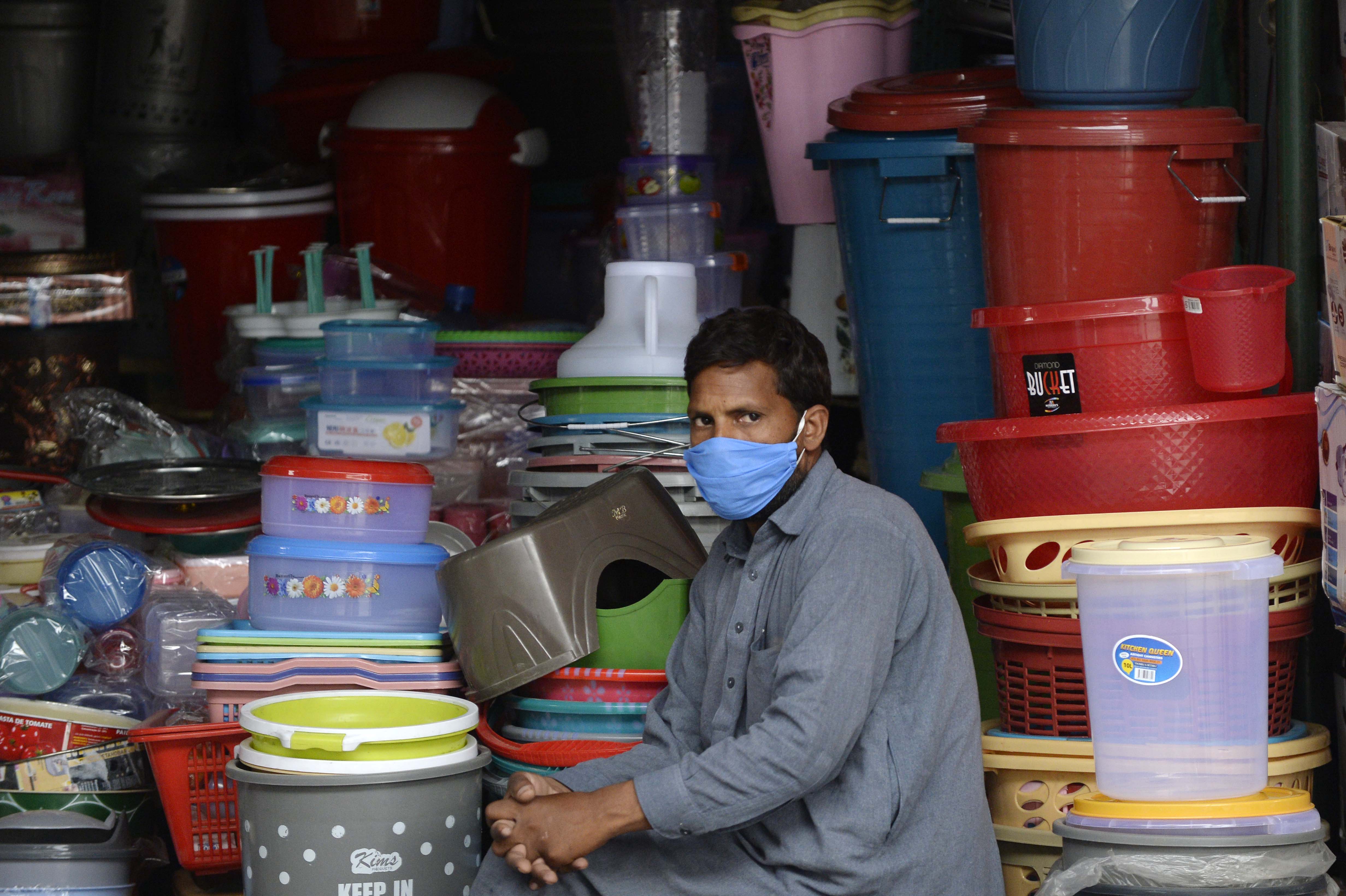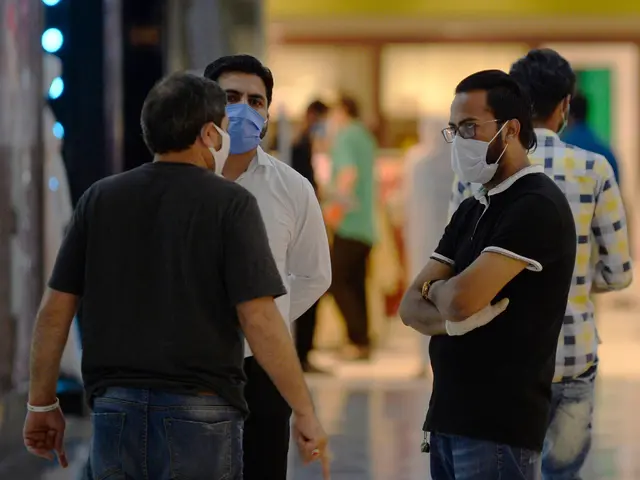People wearing face masks chat with each other at a shopping mall in Islamabad, capital of Pakistan on June 2, 2020. (Xinhua/Ahmad Kamal)
"No mask, no service" is the message written on the entrance door of one of the most popular bakeries Tehzeeb Bakers, in the federal capital of Islamabad as customers make queues to buy their all-time favorite desserts, cakes, loaded pizzas and other delicious grilled stuff.
The staff were also asking customers to sanitize their hands before entering the premises of the bakery, and allowing only a few persons at a time inside to maintain social distancing to contain the spread of the COVID-19 pandemic.
"We are taking precautionary measures and implementing government-set standard operating procedures (SOPs), not just for the sake of our safety, but for other citizens as well to protect them and their loved ones from the deadly virus," Muhammad Khalid, the manager of the bakery, told Xinhua.
The disease has been wreaking havoc and the number of cases and deaths has been skyrocketing in Pakistan over the last couple of days as the government eased lockdown restrictions, he said.
"We cannot afford to shut down our businesses for months as most of us do not have enough money to afford two meals a day without working," Khalid said, adding "now people need to understand that we can only remain safe from the disease while keeping our livelihood secure by strictly following the SOPs."

In May, Pakistan announced to ease the lockdown in a phased manner after imposing it for nearly one and a half months to protect people and keep the wheel of economy running.
Pakistani Prime Minister Imran Khan said on Friday that the country cannot afford another lockdown, urging people to follow the SOPs to curb the spread of the virus.
"Even now, if the people are made to take precautions and follow the SOPs, I am sure we will not have to go through tough times other countries are going through," Khan said, adding that by following the SOPs, the infection curve can be flattened, which would reduce pressure on hospitals.
The number of confirmed COVID-19 cases in Pakistan has surged to 103,671 with 2,067 deaths, according to the data updated by the country's health ministry on Monday.
Although the country has been witnessing the highest number of positive cases over the last few days, the World Health Organization on Friday said that "the disease has not exploded (in Pakistan), but there is always the risk of that happening."
In a conversation with Xinhua, Zafar Mahmood, professor of economics at the National University of Sciences and Technology in Islamabad, said it was simple to forecast that the situation in Pakistan would aggravate and the number of COVID-19 patients would increase dramatically if people takes a casual attitude for the SOPs.
"Countries like Pakistan cannot afford a complete lockdown. The intent behind relaxing the restrictions was to save the underprivileged and national economy," Mahmood said, adding that the opening of businesses was inevitable keeping in view the debilitating financial conditions of the people.
Along with easing lockdown restrictions, the government has been constantly issuing warnings to the people to be more cautious and maintain social distancing while running their businesses to arrest the spread of the disease, he said. "It is not simple for any government alone to defeat the virus. Rather, public cooperation and support is of paramount importance."
To ensure the implementation of the SOPs at crowded areas including public places, markets, malls, shops, and the mosques, the government has constituted special teams that will operate across the country to ensure that the SOPs are being implemented, imposing a fine upon violation.
Authorities in various parts of the country also initiated a crackdown on violators of the SOPs and shut down several overcrowded markets and imposed fines.
The government recently launched media campaigns as well to educate masses about the infectious disease and voluntary compliance with the SOPs.
Naseem Akhtar, an assistant professor on infectious diseases at the Pakistan Institute of Medical Sciences, Islamabad said the adverse impacts of the pandemic could be minimized only by adopting the preventive guidelines issued by the government and health experts.
Akhtar told Xinhua that the pace of spread of the virus can be slowed down to certain limits if not fully eradicated by maintaining social distancing, wearing masks and caring for personal hygiene.
 简体中文
简体中文

